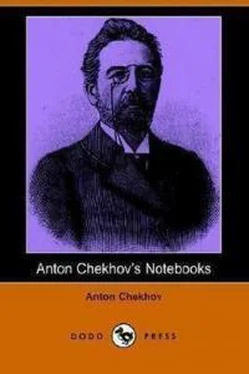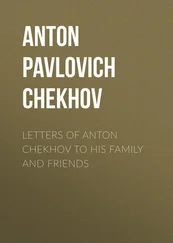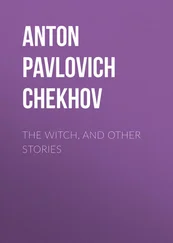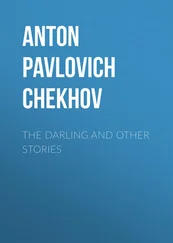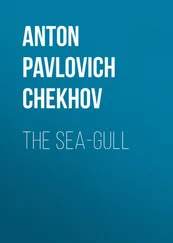Антон Чехов - Notebooks of Anton Chekhov
Здесь есть возможность читать онлайн «Антон Чехов - Notebooks of Anton Chekhov» весь текст электронной книги совершенно бесплатно (целиком полную версию без сокращений). В некоторых случаях можно слушать аудио, скачать через торрент в формате fb2 и присутствует краткое содержание. Год выпуска: 2014, Издательство: epubBooks Classics, Жанр: Биографии и Мемуары, на английском языке. Описание произведения, (предисловие) а так же отзывы посетителей доступны на портале библиотеки ЛибКат.
- Название:Notebooks of Anton Chekhov
- Автор:
- Издательство:epubBooks Classics
- Жанр:
- Год:2014
- ISBN:нет данных
- Рейтинг книги:4 / 5. Голосов: 1
-
Избранное:Добавить в избранное
- Отзывы:
-
Ваша оценка:
- 80
- 1
- 2
- 3
- 4
- 5
Notebooks of Anton Chekhov: краткое содержание, описание и аннотация
Предлагаем к чтению аннотацию, описание, краткое содержание или предисловие (зависит от того, что написал сам автор книги «Notebooks of Anton Chekhov»). Если вы не нашли необходимую информацию о книге — напишите в комментариях, мы постараемся отыскать её.
Notebooks of Anton Chekhov — читать онлайн бесплатно полную книгу (весь текст) целиком
Ниже представлен текст книги, разбитый по страницам. Система сохранения места последней прочитанной страницы, позволяет с удобством читать онлайн бесплатно книгу «Notebooks of Anton Chekhov», без необходимости каждый раз заново искать на чём Вы остановились. Поставьте закладку, и сможете в любой момент перейти на страницу, на которой закончили чтение.
Интервал:
Закладка:
* * * * *
"Why are thy songs so short?" a bird was once asked. "Is it because thou art short of breath?"
"I have very many songs and I should like to sing them all."
(A. Daudet.)
* * * * *
The dog hates the teacher; they tell it not to bark at him; it looks, does not bark, only whimpers with rage.
* * * * *
Faith is a spiritual faculty; animals have not got it; savages and uncivilized people have merely fear and doubt. Only highly developed natures can have faith.
* * * * *
Death is terrible, but still more terrible is the feeling that you might live for ever and never die.
* * * * *
The public really loves in art that which is banal and long familiar, that to which they have grown accustomed.
* * * * *
A progressive, educated, young, but stingy school guardian inspects the school every day, makes long speeches there, but does not spend a penny on it: the school is falling to pieces, but he considers himself useful and necessary. The teacher hates him, but he does not notice it. The harm is great. Once the teacher, unable to stand it any longer, facing him with anger and disgust, bursts out swearing at him.
* * * * *
Teacher : "Poushkin's centenary should not be celebrated; he did nothing for the church."
* * * * *
Miss Guitarov (actress).
* * * * *
If you wish to become an optimist and understand life, stop believing what people say and write, observe and discover for yourself.
* * * * *
Husband and wife zealously followed X.'s idea and built up their life according to it as if it were a formula. Only just before death they asked themselves: "Perhaps that idea is wrong? Perhaps the saying 'mens sana in corpore sano' is untrue?"
* * * * *
I detest: a playful Jew, a radical Ukrainian, and a drunken German.
* * * * *
The University brings out all abilities, including stupidity.
* * * * *
Taking into consideration, dear sir, as a result of this view, dear sir….
* * * * *
The most intolerable people are provincial celebrities.
* * * * *
Owing to our flightiness, because the majority of us are unable and unaccustomed to think or to look deeply into life's phenomena, nowhere else do people so often say: "How banal!" nowhere else do people regard so superficially, and often contemptuously other people's merits or serious questions. On the other hand nowhere else does the authority of a name weigh so heavily as with us Russians, who have been abased by centuries of slavery and fear freedom….
* * * * *
A doctor advised a merchant to eat soup and chicken. The merchant thought the advice ironical. At first he ate a dinner of botvinia and pork, and then, as if recollecting the doctor's orders, ordered soup and chicken and swallowed them down too, thinking it a great joke.
* * * * *
Father Epaminond catches fish and puts them in his pocket; then, when he gets home, he takes out a fish at a time, as he wants it, and fries it.
* * * * *
The nobleman X. sold his estate to N. with all the furniture according to an inventory, but he took away everything else, even the oven dampers, and after that N. hated all noblemen.
* * * * *
The rich, intellectual X., of peasant origin, implored his son:—"Mike, don't get out of your class. Be a peasant until you die, do not become a nobleman, nor a merchant, nor a bourgeois. If, as you say, the Zemstvo officer now has the right to inflict corporal punishment on peasants, then let him also have the right to punish you." He was proud of his peasant origin, he was even haughty about it.
* * * * *
They celebrated the birthday of an honest man. Took the opportunity to show off and praise one another. Only towards the end of the dinner they suddenly discovered that the man had not been invited; they had forgotten.
* * * * *
A gentle quiet woman, getting into a temper, says: "If I were a man, I would just bash your filthy mug."
* * * * *
A Mussulman for the salvation of his soul digs a well. It would be a pleasant thing if each of us left a school, a well, or something like that, so that life should not pass away into eternity without leaving a trace behind it.
* * * * *
We are tired out by servility and hypocrisy.
* * * * *
N. once had his clothes torn by dogs, and now, when he pays a call anywhere, he asks: "Aren't there any dogs here?"
* * * * *
A young pimp, in order to keep up his powers, always eats garlic.
* * * * *
School guardian. Widowed priest plays the harmonium and sings: "Rest with the saints."
* * * * *
In July the red bird sings the whole morning.
* * * * *
"A large selection of cigs" [4] Cigs in Russian is a kind of fish.
—so read X. every day when he went down the street, and wondered how one could deal only in cigs and who wanted them. It took him thirty years before he read it correctly: "A large selection of cigars."
* * * * *
A bride to an engineer: a dynamite cartridge filled with one–hundred–rouble notes.
* * * * *
"I have not read Herbert Spencer. Tell me his subjects. What does he write about?" "I want to paint a panel for the Paris exhibition. Suggest a subject." (A wearisome lady.)
* * * * *
The idle, so–called governing, classes cannot remain long without war. When there is no war they are bored, idleness fatigues and irritates them, they do not know what they live for; they bite one another, try to say unpleasant things to one another, if possible with impunity, and the best of them make the greatest efforts not to bore the others and themselves. But when war comes, it possesses all, takes hold of the imagination, and the common misfortune unites all.
* * * * *
An unfaithful wife is a large cold cutlet which one does not want to touch, because some one else has had it in his hands.
* * * * *
An old maid writes a treatise: "The tramline of piety."
* * * * *
Ryzeborsky, Tovbin, Gremoukhin, Koptin.
* * * * *
She had not sufficient skin on her face; in order to open her eyes she had to shut her mouth and vice versa .
* * * * *
When she raises her skirt and shows her lace petticoat, it is obvious that she dresses like a woman who is accustomed to be seen by men.
* * * * *
X. philosophizes: "Take the word 'nose.' In Russia it seems something unmentionable means the deuce knows what, one may say the indecent part of the body, and in French it means wedding." And indeed X.'s nose was an indecent part of the body.
* * * * *
A girl, flirting, chatters: "All are afraid of me … men, and the wind … all leave me alone! I shall never marry." And at home poverty, her father a regular drunkard. And if people could see how she and her mother work, how she screens her father, they would feel the deepest respect for her and would wonder why she is so ashamed of poverty and work, and is not ashamed of that chatter.
* * * * *
A restaurant. An advanced conversation Andrey Andreyevitch, a good–natured bourgeois, suddenly declares: "Do you know gentlemen, I was once an anarchist!" Every one is astonished. A.A. tells the following tale: a strict father; a technical school opened in the provincial town in a craze for technical education; they have no ideas and they did not know what to teach (since, if you are going to make shoemakers of all the inhabitants, who will buy the shoes?); he was expelled and his father turned him out of the house; he had to take a job as an assistant clerk on the squire's estate; he became enraged with the rich, the well–fed, and the fat; the squire planted cherry trees, A.A. helped him, and suddenly a desire came over him to cut off the squire's white fat fingers with the spade, as if it were by accident; and closing his eyes he struck a blow with the shovel as hard as he could, but it missed. Then he went away; the forest, the quiet in the fields, rain; he longed for warmth, went to his aunt, she gave him tea and rolls—and his anarchism was gone. After the story there passed by the table Councillor of State L. Immediately A.A. gets up and explains how L., Councillor of State, owns houses, etc.
Читать дальшеИнтервал:
Закладка:
Похожие книги на «Notebooks of Anton Chekhov»
Представляем Вашему вниманию похожие книги на «Notebooks of Anton Chekhov» списком для выбора. Мы отобрали схожую по названию и смыслу литературу в надежде предоставить читателям больше вариантов отыскать новые, интересные, ещё непрочитанные произведения.
Обсуждение, отзывы о книге «Notebooks of Anton Chekhov» и просто собственные мнения читателей. Оставьте ваши комментарии, напишите, что Вы думаете о произведении, его смысле или главных героях. Укажите что конкретно понравилось, а что нет, и почему Вы так считаете.
